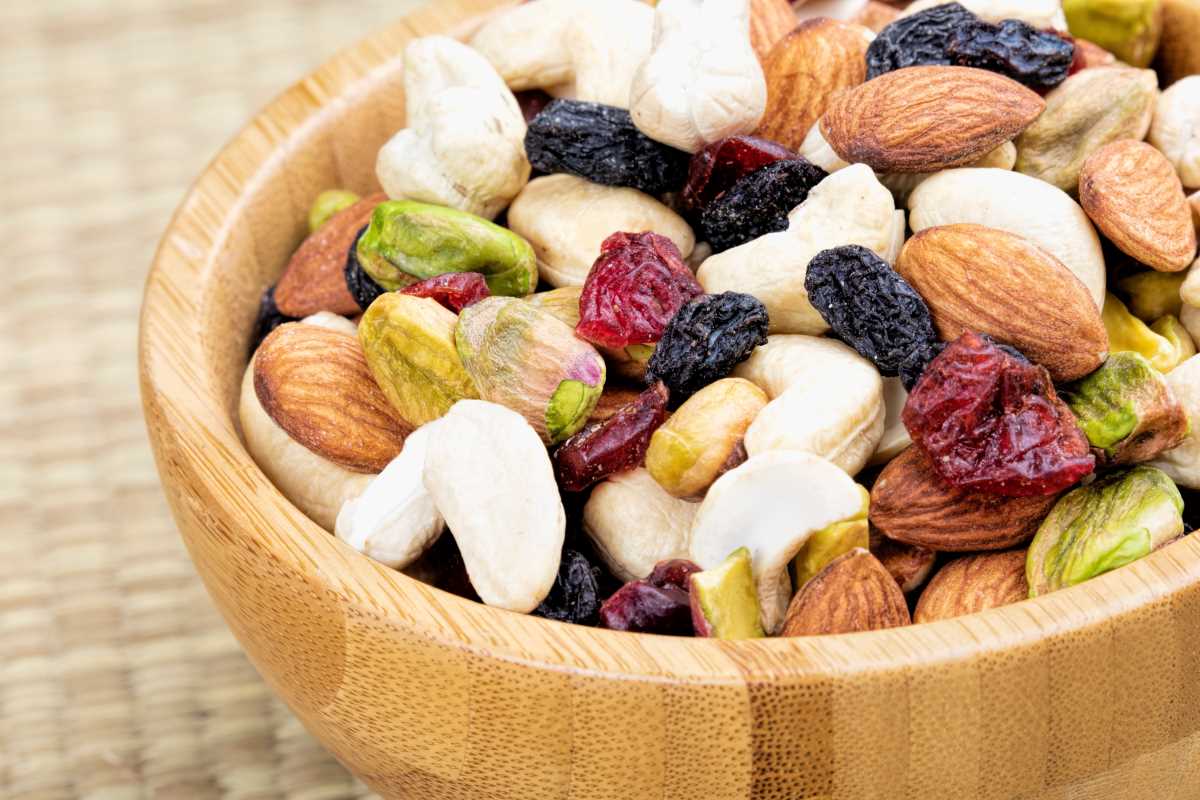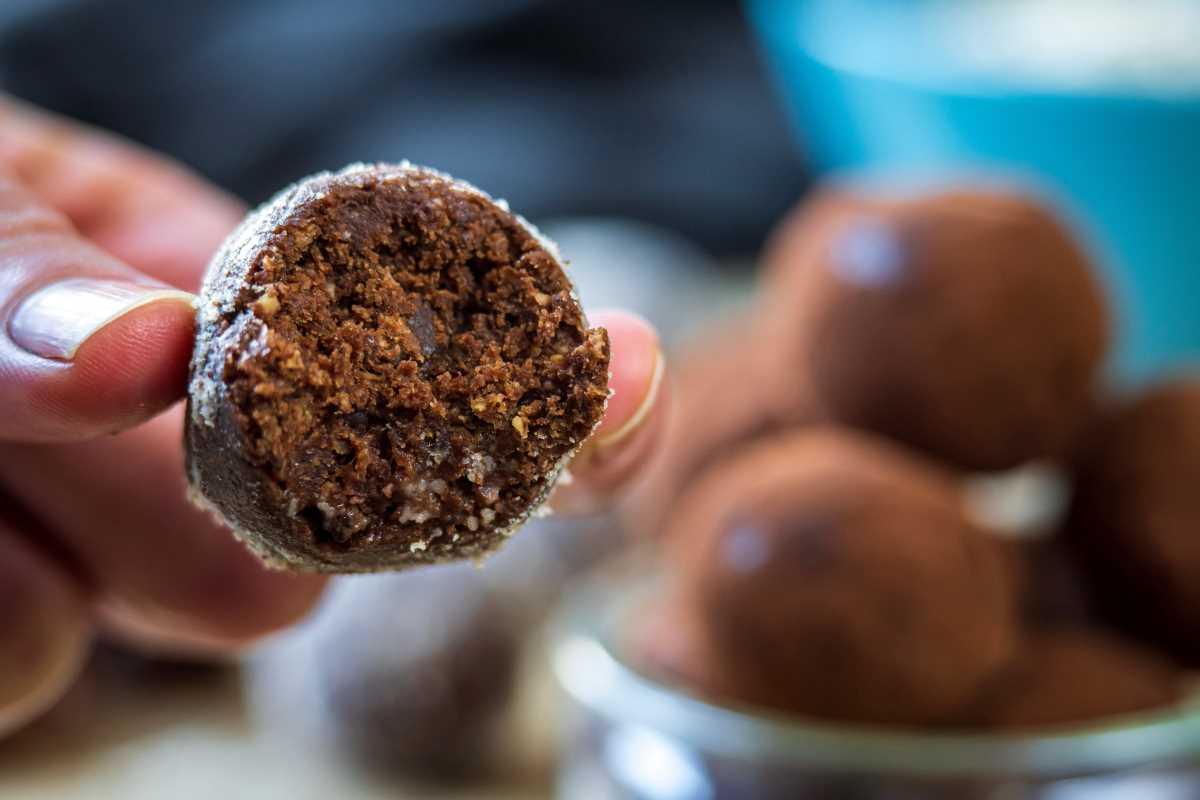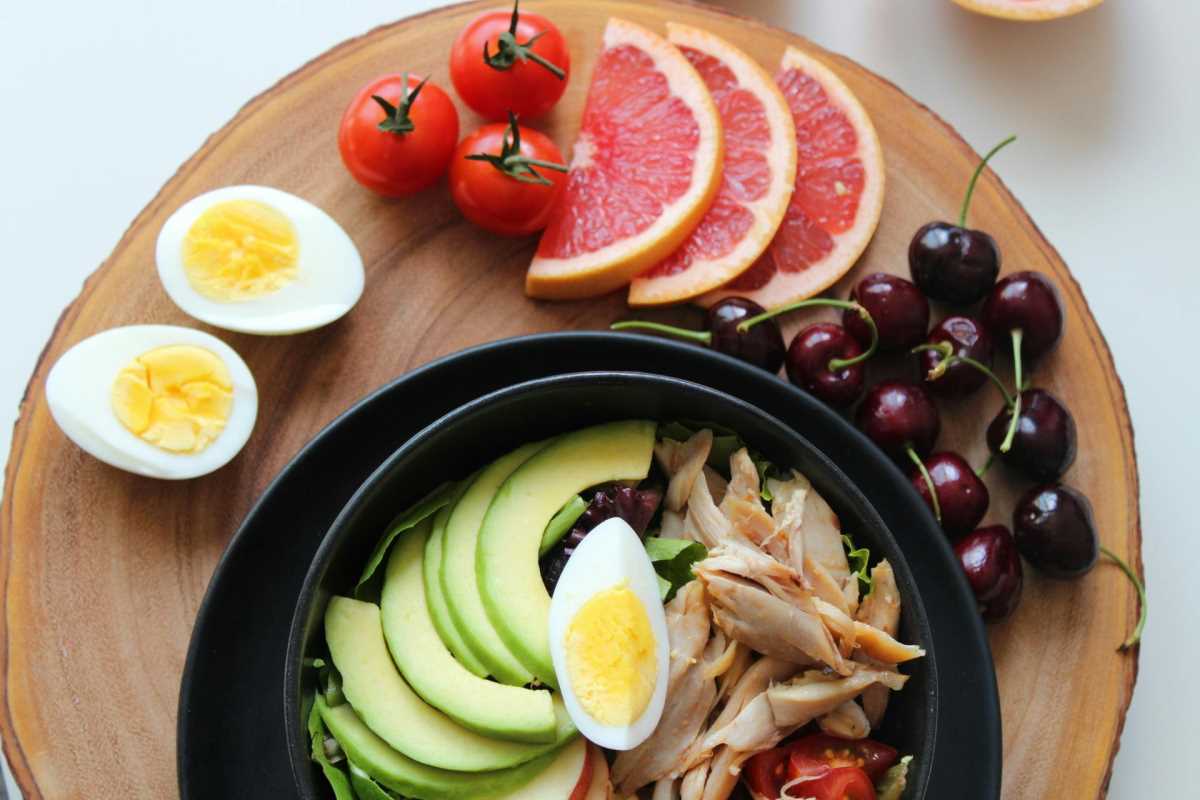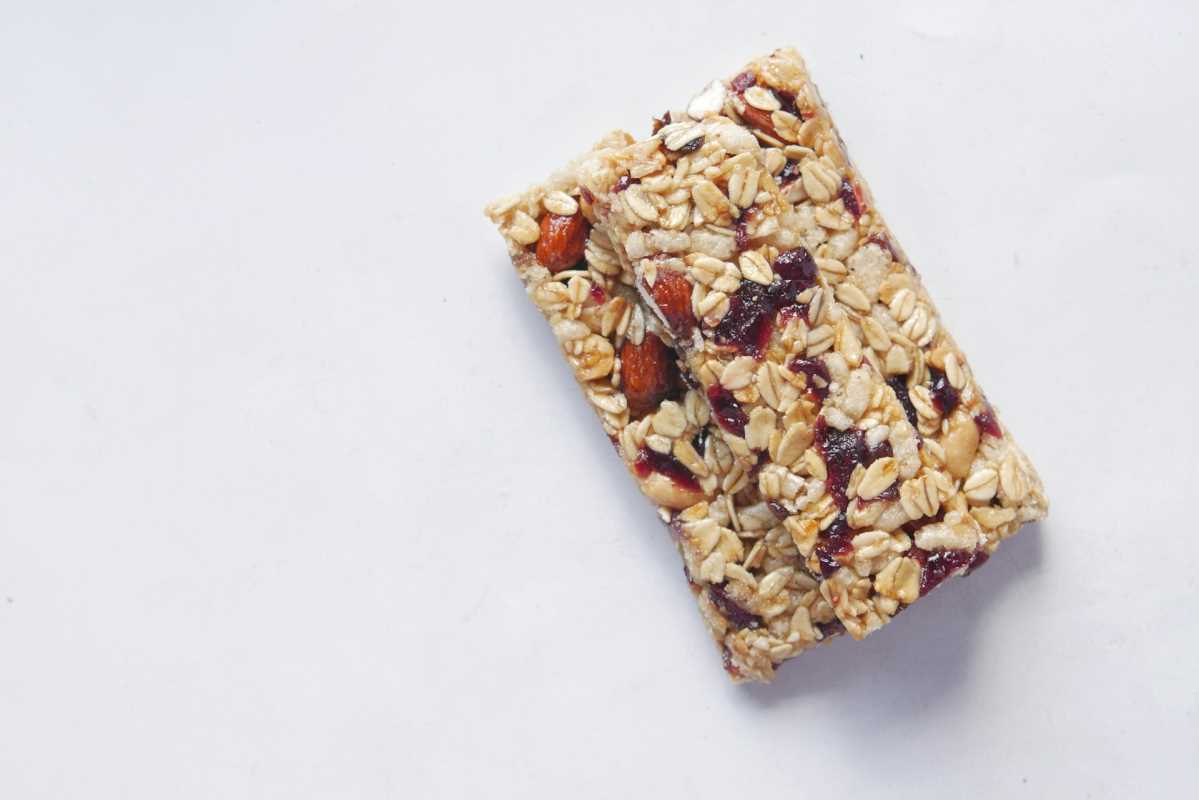Athletes face a constant challenge: fueling their bodies efficiently while maintaining peak performance. The grocery store aisle presents two primary options—sleek energy bars promising convenience and performance, or whole food snacks that offer natural nutrition. Understanding the science behind both choices empowers you to make informed decisions that support your athletic goals.
Research shows that proper snack timing and composition can improve athletic performance by up to 15% while supporting faster recovery between training sessions. Yet many athletes struggle to navigate the overwhelming array of options, often defaulting to whatever seems most convenient. Let's examine the evidence to help you choose the fuel that best serves your body and performance goals.
Understanding Athletic Nutrition Needs
Your body requires specific nutrients at strategic times to optimize performance and recovery. During exercise lasting longer than 60 minutes, you need 30-60 grams of carbohydrates per hour to maintain energy levels. Post-exercise, the ideal recovery window calls for a 3:1 or 4:1 ratio of carbohydrates to protein within 30 minutes of finishing your workout.
Quality matters as much as quantity. Your digestive system functions differently during and after exercise, requiring foods that provide rapid nutrient absorption without causing gastrointestinal distress. This physiological reality shapes the ongoing debate between processed energy bars and whole food alternatives.
Energy Bars: The Convenience Champion
Energy bars have revolutionized athletic fueling by packaging targeted nutrition into portable, shelf-stable formats. These processed products offer undeniable advantages for active individuals managing busy schedules and demanding training regimens.
The Convenience Factor
Energy bars excel in scenarios where whole foods become impractical. During long bike rides, hiking expeditions, or between back-to-back training sessions, bars provide immediate fuel without refrigeration requirements or preparation time. Their compact size and wrapper protection make them ideal for gym bags, car glove compartments, and travel situations.
Professional athletes often rely on bars during competition because they deliver predictable nutrition content and minimize digestive variables. When performance depends on consistent fueling, the standardized nature of energy bars provides valuable peace of mind.
Targeted Nutrition Profiles
Quality energy bars are formulated with specific athletic needs in mind. Pre-workout bars typically emphasize easily digestible carbohydrates with minimal fiber to provide quick energy without gastrointestinal distress. Recovery bars often include the optimal carbohydrate-to-protein ratio supported by sports nutrition research.
Many bars also incorporate performance-enhancing ingredients like caffeine for energy, electrolytes for hydration support, or branched-chain amino acids for muscle recovery. This targeted approach allows athletes to address specific nutritional needs through convenient consumption.
Scientific Formulation Benefits
Energy bar manufacturers employ food scientists and sports nutritionists to create products based on current research. This expertise often results in nutrient combinations and ratios that would be difficult to achieve through whole foods alone. The controlled manufacturing environment also ensures consistent nutrient content, eliminating guesswork about what you're consuming.
The Dark Side of Energy Bars
Despite their convenience, energy bars present several concerning drawbacks that every athlete should understand before making them dietary staples.
Processing and Artificial Additives
Most commercial energy bars contain extensive lists of processed ingredients, artificial flavors, preservatives, and texture modifiers. These additives serve manufacturing and shelf-life purposes but offer no nutritional benefits. Some athletes experience digestive discomfort or allergic reactions to common bar additives like artificial sweeteners, sugar alcohols, or synthetic vitamins.
The high degree of processing often strips away beneficial compounds found in whole foods, such as antioxidants, fiber, and phytonutrients that support overall health and recovery.
Hidden Sugar Content
Many energy bars contain 15-25 grams of added sugars, rivaling candy bars in sweetness. While some sugar serves legitimate performance purposes, excess amounts can cause blood sugar spikes followed by energy crashes. Athletes consuming multiple bars daily may unknowingly exceed recommended daily sugar limits.
Reading labels becomes crucial, as manufacturers often use multiple sugar sources (cane sugar, brown rice syrup, agave nectar) that collectively create very sweet products masked by health-focused marketing.
Cost Considerations
Quality energy bars typically cost $2-4 each, making them expensive relative to their nutritional content. Athletes consuming 2-3 bars daily spend $150-350 monthly on this single snack category. This cost adds up significantly over time, especially for budget-conscious athletes or families supporting multiple active individuals.
Environmental Impact
Individual wrapper packaging creates substantial waste, with active individuals potentially discarding hundreds of bar wrappers annually. The manufacturing, packaging, and shipping processes also generate larger carbon footprints compared to locally sourced whole foods.
Whole Snacks: Nature's Performance Foods
Whole food snacks offer natural nutrition in forms your body has evolved to process efficiently. These options provide broader nutritional benefits while often costing significantly less than processed alternatives.
Superior Nutrient Density
Whole foods deliver nutrients in naturally occurring combinations that enhance absorption and utilization. A banana provides not only carbohydrates for energy but also potassium for muscle function, vitamin B6 for protein metabolism, and fiber for digestive health. This nutrient synergy is difficult to replicate in processed products.
Fresh fruits, nuts, seeds, and whole grains contain antioxidants and phytonutrients that combat exercise-induced oxidative stress and support recovery processes. These beneficial compounds are often destroyed during processing or absent entirely in manufactured products.
Cost Effectiveness
Whole food snacks typically cost 50-75% less than equivalent energy bars while providing superior nutrition. A homemade trail mix containing nuts, seeds, and dried fruit costs approximately $0.75 per serving compared to $3.00 for a similar energy bar.
Buying ingredients in bulk and preparing portions ahead of time maximizes both savings and convenience. Many whole food snacks require minimal preparation time while offering fresher flavors and customizable nutrition profiles.
Digestive Advantages
Your digestive system recognizes and processes whole foods more efficiently than heavily processed alternatives. Many athletes report fewer gastrointestinal issues when transitioning from energy bars to whole food snacks, particularly during longer training sessions.
The fiber content in whole foods supports digestive health and helps regulate blood sugar levels, preventing the dramatic spikes and crashes associated with highly processed snacks.
Environmental Benefits
Choosing whole foods significantly reduces packaging waste and environmental impact. Purchasing fresh produce, nuts, and grains in bulk eliminates individual wrapper waste while supporting more sustainable food systems.
Local and seasonal whole food choices further reduce transportation emissions while providing fresher, more nutritious options.
Strategic Timing: When to Choose Each Option
Understanding when each snack type offers optimal benefits allows you to strategically leverage the strengths of both approaches.
Pre-Workout Fueling
Energy bars excel for pre-workout fueling 30-60 minutes before exercise. Their processed carbohydrates digest quickly without fiber interference, providing readily available energy. Choose bars with 25-35 grams of carbohydrates and minimal protein or fat to optimize digestion speed.
Whole food alternatives work better 2-3 hours before exercise when you have time for complete digestion. A banana with a small amount of nut butter provides natural sugars plus healthy fats for sustained energy.
During Exercise Fueling
Energy bars dominate during prolonged exercise lasting over 90 minutes. Their portable format and predictable carbohydrate content make them practical for activities like cycling, hiking, or long runs where carrying whole foods becomes cumbersome.
Whole food options work well during lower-intensity, longer-duration activities where digestion time isn't critical. Dates stuffed with nuts provide natural sugars and are easily portable for hiking or casual cycling.
Post-Workout Recovery
Recovery-specific bars offer optimal carbohydrate-to-protein ratios within the crucial 30-60 minute post-exercise window. Their liquid-friendly format also supports rapid nutrient absorption when your body prioritizes recovery over digestion.
Whole food combinations excel when consumed 2+ hours post-exercise. Chocolate milk provides ideal recovery nutrition naturally, while Greek yogurt with fruit offers probiotics plus recovery nutrients.
Travel and Competition
Energy bars provide unmatched convenience during travel or competition when food safety, storage, and preparation become concerns. Their shelf stability and consistent nutrition make them valuable insurance policies for performance situations.
Whole foods work well for local competitions or training when fresh options are readily available and storage isn't problematic.
Top Whole Food Alternatives That Rival Energy Bars
These whole food options provide comparable convenience and superior nutrition to commercial energy bars:
Homemade Energy Balls
Combine dates, nuts, seeds, and cocoa powder in a food processor, then roll into portable balls. These provide natural sugars, healthy fats, protein, and fiber while costing 60% less than commercial bars.
Recipe: 1 cup pitted dates, 1/2 cup almonds, 2 tablespoons chia seeds, 1 tablespoon cocoa powder, 1 teaspoon vanilla extract.
Nut Butter and Fruit Combinations
Apple slices with almond butter or banana with peanut butter provide ideal pre-workout fuel. The fruit supplies quick-digesting carbohydrates while nut butter adds protein and healthy fats for sustained energy.
Trail Mix Variations
Create custom blends using raw nuts, seeds, dried fruit, and dark chocolate pieces. Control sodium, sugar, and ingredient quality while achieving the perfect balance for your training needs.
Greek Yogurt Parfaits
Layer Greek yogurt with berries, granola, and honey for a protein-rich snack that supports both energy and recovery. Prepare in mason jars for grab-and-go convenience that rivals packaged bars.
Hard-Boiled Eggs with Whole Grain Crackers
This combination provides complete protein plus complex carbohydrates for sustained energy. Prepare eggs in weekly batches and pair with portable whole grain options.
Making Smart Energy Bar Choices
When energy bars serve your needs best, choose options that maximize nutrition while minimizing processed additives:
Reading Labels Effectively
Look for bars with fewer than 10 ingredients, recognizable food sources, and minimal added sugars. Avoid products containing artificial sweeteners, high-fructose corn syrup, or extensive lists of chemical additives.
Prioritize bars where the first ingredient is a whole food source like dates, oats, or nuts rather than processed sugars or protein isolates.
Timing-Specific Selections
Pre-workout bars should emphasize carbohydrates (25-35g) with minimal protein (<10g) and fat (<5g) for rapid digestion.
Recovery bars need balanced carbohydrate-to-protein ratios (3:1 or 4:1) with 15-25 grams of protein for optimal muscle recovery.
Meal replacement bars require higher calorie content (300-400 calories) with balanced macronutrients including fiber for sustained satiety.
Quality Brand Recommendations
Choose brands that prioritize whole food ingredients, transparent labelling, and third-party testing for quality and purity. Look for bars that use natural sweeteners like honey or dates instead of artificial sweeteners or sugar alcohols.
Some top recommended brands include:
- RXBAR: Known for their simple, whole food ingredients and transparent labelling.
- Larabar: Made with minimal ingredients and no added sugars.
- GoMacro: Certified organic, plant-based, and gluten-free options available.
- Perfect Bar: Made with real nut butter and high in protein.
- KIND Bars: Made with whole nuts, fruits, and grains without any artificial flavors or preservatives.
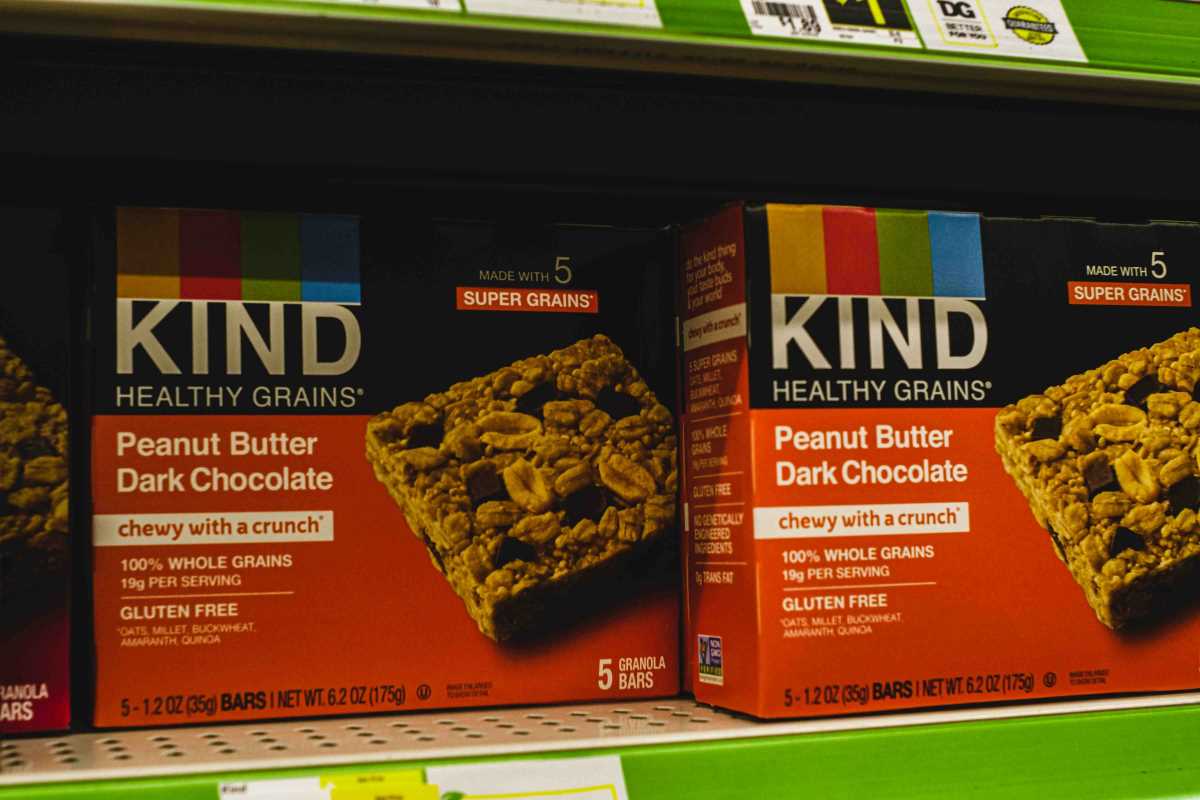 (Image via
(Image via